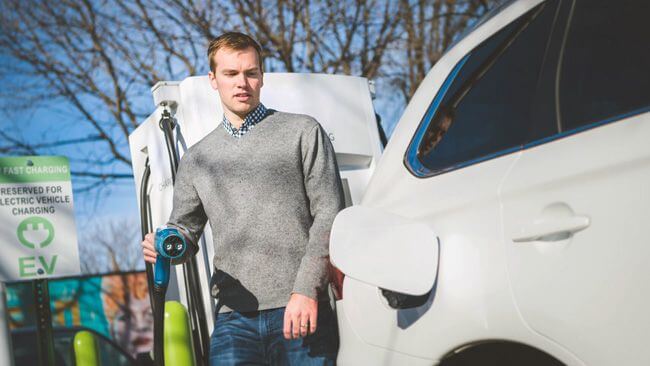Following six months of stakeholder input, Duke Energy recently filed an additional $56 million proposal of Phase II programs to continue the advancement of transportation electrification in North Carolina.
The filing follows the November 2020 North Carolina Utilities Commission (NCUC) order approving the company’s $25 million Phase I electric transportation pilot program. In its earlier order, the NCUC instructed Duke Energy to work with the public staff to organize a collaborative stakeholder process and then file any stakeholder-developed pilot programs.
“The move to an electric-driven transportation sector will include input from stakeholders from across North Carolina,” says Stephen De May, president of Duke Energy North Carolina. “Our filing reflects the best ideas we heard on how Duke Energy can spur that transition.”
Although North Carolina has more than 26,000 electric vehicles (EVs) in the state, Gov. Roy Cooper set forth a statewide goal of getting 80,000 zero-emission vehicles on the road by 2025.
Duke Energy’s efforts will lead to more than 1,000 charging ports being installed in the state. The company’s Phase II pilot programs will:
- Build on the company’s earlier pilot by expanding DC fast-charging on state highways, charging at multi-family dwellings and provide financial support to school systems to purchase 60 electric school buses.
- Support the continued development of the competitive market for DC fast-charging by requiring multiple providers of the hardware and software, creating a transparent stakeholder informed process around vendor selection that allows for alternative pricing by site hosts.
- Create a pilot for a tariffed EV charging program for residential and business customers. This program allows for customers to install and operate EV charging stations for a low monthly rate with the customer making all operational choices, including brand of hardware and network. In many cases, this may be a zero upfront cost option for customers charging EVs.
Duke Energy has already launched programs to expand EV charging both internally at Duke Energy locations and externally through several utility pilot programs. An internal “Electrify by Example” initiative is starting with an effort to install workplace chargers at all work locations to enable employees to drive electric.
In Florida, the company’s Park & Plug pilot has installed more than 590 EV public charging stations throughout the state. The deployment includes 50 fast-charging stations connecting areas of Florida previously underserved by EV fast-charging infrastructure. To date, drivers have used the Park & Plug network for more than 75,000 charging sessions.
In South Carolina, the company will provide up to a total of $1,000 for 400 residential Duke Energy Carolinas customers who install a Level 2 charging station, provide access to their charging data and manage EV charging load to occur during off-peak periods. The company will also deploy 60 fast chargers there to expand access to fast-charging infrastructure in the state.





